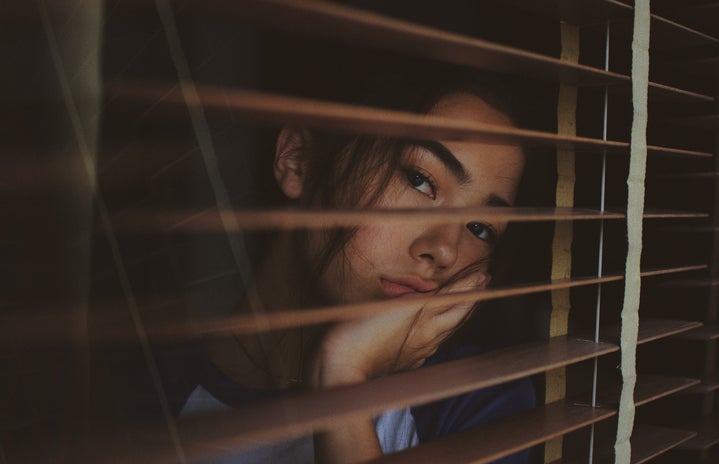There was a time in my life when I felt like nothing was going right, the ground that once gave me stability began crumbling beneath me. In 2021, I had turned 19 years old—I remember being excited turning an age that seemed so distant as a child, but also nervous for what it had in store for me considering I had lived through what felt like a never-ending cycle of inconsistent emotions throughout my early teenage years. Of course, like everyone, I innately experienced the hormonal changes that come with adolescence and rode the dizziest emotional rollercoaster that I ever had.
There are many defining factors that explain the emotional turmoil that teenagers experience, however my focus is on the impact these factors had over the years 2020-2021. The year 2020 was an overwhelming and confusing time for everyone, the global COVID-19 pandemic had launched, and the mind-numbing quarantine followed as a method to keep the public safe. While doctors and other health organizations were rightfully focused on the physical health of society, few were focused on the mental state of teenage girls. Many of us had to adjust to the abrupt changes of doing schoolwork online which led to spending countless hours alone in our room—personally, leaving too much time to think.
In recent studies by the CDC, there were more reports of teenage girls having an extremely unstable mental and emotional well-being during the pandemic than ever. The sadness lingered for longer than most teens usually experience. Human interaction is a vital part in everyday life and engaging in conversation steers us away from a declining mental state. Having to abruptly transition from a highly interactive society to one of maximum isolation can alter our brain chemistry. That is exactly what the quarantine entailed; we went into hermit mode.
This was a detrimental time for the public, with everything being shut down we heavily relied on social media content to educate and entertain us. Relying on social media as a form of interaction heightened depressive thoughts and suicidal behavior.
Social media is used as a gateway to create communities of people who generally have the same opinion—algorithms tend to keep people in these filtered bubbles. TikTok is a great example of an algorithm in use and how the infinite scroll continuously feeds into people’s interest. My TikTok algorithm in 2020 consisted of uncomfortable conversations regarding mental health and how to cope with it during this dreadful isolation. Much of this advice was not from professionals but the people themselves. I recall that it was due to the amount of over-sharing taking place on TikTok that led me to a place of understanding I was alone, but not lonely. There was a community of other angsty teenage girls who feared the unpredictability of the state of our world. It was through this that I realized the mental health issue was bigger than it seemed to be.
Getting help during a time like this seemed nearly impossible, especially due to a lack of access. Many of these young women had expressed the desire to start therapy but were unable to through their health care plans. Access to exceptional therapy is a luxury that only people with high incomes receive. It is because of this that we have recorded extreme depths of sadness in teenagers who come from low-income families. Health care availability is a human right, and we must acknowledge those most in need of it.
If you or someone you know is struggling with suicidal thoughts, please contact the National Suicide Prevention Lifeline at 988 or visit their website.


